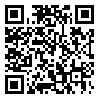Volume 4, Issue 2 (2016)
Health Educ Health Promot 2016, 4(2): 5-14 |
Back to browse issues page
Download citation:
BibTeX | RIS | EndNote | Medlars | ProCite | Reference Manager | RefWorks
Send citation to:



BibTeX | RIS | EndNote | Medlars | ProCite | Reference Manager | RefWorks
Send citation to:
bakhshian K, Panahi R, Hidarnia A. The Effect of Education via Mobile Text Messaging on Self-care amongst Patients with Type 2 Diabetes. Health Educ Health Promot 2016; 4 (2) :5-14
URL: http://hehp.modares.ac.ir/article-5-9352-en.html
URL: http://hehp.modares.ac.ir/article-5-9352-en.html
The Effect of Education via Mobile Text Messaging on Self-care amongst Patients with Type 2 Diabetes
1- Msc student, Department of Health Education, Faculty of Medical Sciences, Tarbiat Modares University, Tehran, Iran
2- PPh.D. Candidate, Department of Health Education, Faculty of Medical Sciences, Tarbiat Modares University, Tehran, Iran
3- Professor, Department of Health Education & Health Promotion, Faculty of Medical Sciences, Tarbiat Modares University, Tehran, Iran
2- PPh.D. Candidate, Department of Health Education, Faculty of Medical Sciences, Tarbiat Modares University, Tehran, Iran
3- Professor, Department of Health Education & Health Promotion, Faculty of Medical Sciences, Tarbiat Modares University, Tehran, Iran
Abstract: (5633 Views)
Aim: The most important factor underlying the mortality of patients with diabetes is the lack of self-care. This study aimed to determine the effect of education via mobile text messaging on the self-care of patients with type 2 diabetes.
Methods: This semi-experimental controlled study was carried out on 74 patients with diabetes in Chabahar, Iran. They were selected using convenience sampling in the health care centers, and were randomized into two control and intervention groups of 37 subjects each. The tools to collect data were questionnaires containing demographic profiles and self-care questionnaire. For each group, the questionnaires were completed, and educational SMS (short message service) was sent to the intervention group for four weeks. The post-test questionnaire was completed by both groups two months after educational intervention. Data were analyzed using SPSS16 and appropriate statistical tests.
Findings: Before the intervention, the mean scores of all self-care dimensions between the two groups did not differ significantly but after that, the mean of total scores of self-care and some of its dimensions (adherence to diet, blood glucose self-monitoring and foot care) were positive, and significantly increased in the intervention group versus the control group regularly after intervention were not different significantly between the two groups (P>0.05).
Conclusion: Considering the effectiveness of sending SMS educational method (SSEM) in improving the self-care of patients, it is necessary to further consider and use this method.
Methods: This semi-experimental controlled study was carried out on 74 patients with diabetes in Chabahar, Iran. They were selected using convenience sampling in the health care centers, and were randomized into two control and intervention groups of 37 subjects each. The tools to collect data were questionnaires containing demographic profiles and self-care questionnaire. For each group, the questionnaires were completed, and educational SMS (short message service) was sent to the intervention group for four weeks. The post-test questionnaire was completed by both groups two months after educational intervention. Data were analyzed using SPSS16 and appropriate statistical tests.
Findings: Before the intervention, the mean scores of all self-care dimensions between the two groups did not differ significantly but after that, the mean of total scores of self-care and some of its dimensions (adherence to diet, blood glucose self-monitoring and foot care) were positive, and significantly increased in the intervention group versus the control group regularly after intervention were not different significantly between the two groups (P>0.05).
Conclusion: Considering the effectiveness of sending SMS educational method (SSEM) in improving the self-care of patients, it is necessary to further consider and use this method.
Article Type: Original Article |
Subject:
Health Promotion
Received: 2017/02/6 | Accepted: 2016/04/1 | Published: 2017/08/26
Received: 2017/02/6 | Accepted: 2016/04/1 | Published: 2017/08/26
| Rights and permissions | |
 |
This work is licensed under a Creative Commons Attribution-NonCommercial 4.0 International License. |





